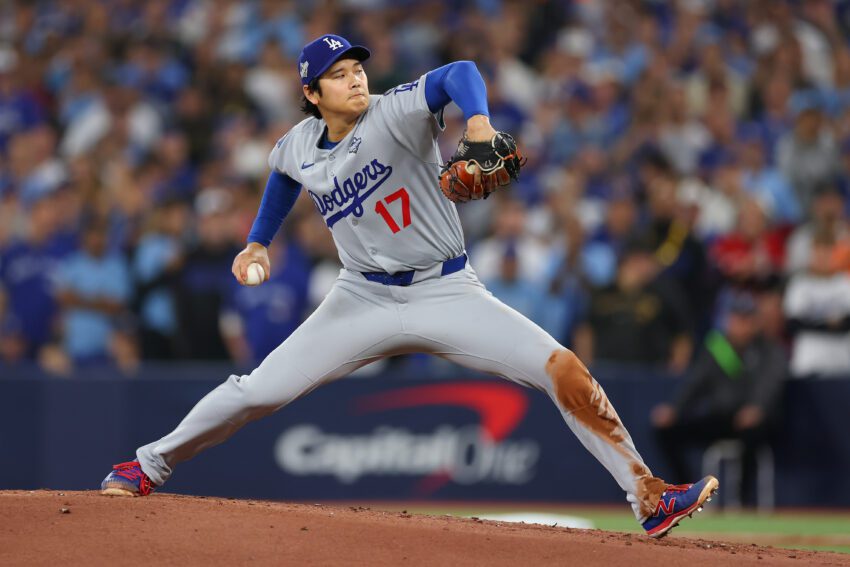
netflix signs a three year deal to Major League Baseball has officially entered into new media rights agreements with ESPN, NBCUniversal, and Netflix, marking a significant shift in how fans will access live MLB games over the next three seasons.
netflix signs a three year deal to
Overview of the New Media Rights Deals
On the announcement date, MLB revealed that its new media rights deals with ESPN, NBCUniversal, and Netflix will span three seasons, fundamentally altering the landscape of sports broadcasting. This move not only enhances the accessibility of MLB games but also reflects the growing trend of streaming services entering the sports arena. The Netflix deal, in particular, is noteworthy as it will introduce live MLB games to its platform, expanding its sports programming library.
Financial Implications
The financial terms of the Netflix agreement are significant, with Front Office Sports reporting that the deal is valued at approximately $50 million per year. This investment underscores Netflix’s commitment to diversifying its content offerings and attracting a broader audience. By incorporating live sports, Netflix aims to enhance its value proposition to subscribers, especially in a competitive streaming market where traditional viewership is declining.
Details of the Streaming Agreement
Under the terms of the agreement, Netflix will stream a selection of MLB events each season. Specifically, the platform will broadcast:
- A single game on Opening Night of each season
- The Home Run Derby
- One special event game each year
For the 2026 season, the special event game will be the much-anticipated “Field of Dreams” game, set to take place on August 13, 2026, featuring a matchup between the Minnesota Twins and the Philadelphia Phillies. This game is particularly significant as it pays homage to the iconic 1989 film “Field of Dreams,” which has become a cultural touchstone for baseball fans.
Comparison with Previous Media Rights
The new agreements indicate a departure from MLB’s previous media rights structure, which primarily involved a singular deal with ESPN. The inclusion of NBCUniversal and Netflix in the mix represents a strategic move to diversify the league’s broadcasting options and reach a wider audience. This shift is particularly relevant in an era where traditional cable subscriptions are declining, and streaming platforms are gaining traction.
NBCUniversal’s Role in the New Agreements
NBCUniversal’s involvement in the new media rights deals is also noteworthy. The network will air the Sunday Night Baseball game, along with draft coverage and additional games across its platforms. According to MLB, some Sunday night games will be available for streaming on Peacock, NBC’s streaming service, and will also be simulcast on NBCSN during weeks when there are overlaps with previously negotiated media rights deals.
Furthermore, Peacock will carry MLB’s Sunday Leadoff games, which typically start around noon, and these will be simulcast on the newly relaunched NBC Sports Network. This multi-platform approach allows NBCUniversal to maximize its reach and offer fans multiple ways to engage with the games.
ESPN’s Continued Dominance in MLB Broadcasting
ESPN remains a key player in the MLB broadcasting landscape with its own set of rights. The network has secured a 30-game broadcast package each season that will be exclusive to its channels and the ESPN app. This exclusivity is crucial for maintaining ESPN’s status as a premier sports broadcaster. Additionally, ESPN will stream 150 out-of-market games, providing one game per day through its app, which enhances the viewing options for fans who may not have access to their local teams.
ESPN’s ability to sell MLB Network and some in-market games via its app further solidifies its position in the sports broadcasting ecosystem. This strategy not only caters to die-hard fans but also attracts casual viewers who may be interested in specific matchups or events.
Implications for Fans and Stakeholders
The new media rights deals have significant implications for fans, stakeholders, and the broader sports broadcasting landscape. For fans, the introduction of MLB games on Netflix and the continued availability on ESPN and NBCUniversal means greater flexibility in how they consume content. The ability to watch games on various platforms caters to different viewing preferences and lifestyles, particularly among younger audiences who favor streaming over traditional cable.
Impact on Viewership and Engagement
As streaming services continue to gain popularity, the MLB’s decision to partner with Netflix is a strategic move to capture the attention of a demographic that may not be as engaged with traditional sports broadcasting. By offering live games on a platform that is already popular among younger viewers, MLB aims to increase its viewership and overall engagement. This could lead to a new generation of baseball fans who may not have previously followed the sport closely.
Reactions from Stakeholders
The reactions from various stakeholders have been largely positive. MLB Commissioner Rob Manfred expressed enthusiasm about the new agreements, stating that they represent a “new era” for the league. He emphasized the importance of adapting to changing viewing habits and the need to reach fans where they are. The partnerships with ESPN, NBCUniversal, and Netflix are seen as a proactive approach to ensuring that MLB remains relevant in a rapidly evolving media landscape.
Executives from Netflix have also voiced their excitement regarding the deal. They view the addition of live sports as a critical component of their strategy to attract and retain subscribers. As competition among streaming platforms intensifies, the ability to offer exclusive live events could provide Netflix with a significant edge.
Future Considerations
While the new media rights deals present numerous opportunities, they also come with challenges. As the landscape of sports broadcasting continues to evolve, MLB will need to remain vigilant in monitoring viewer preferences and technological advancements. The success of these agreements will depend on how well the league can adapt to changing consumer behaviors and leverage data analytics to enhance the viewing experience.
Technological Innovations
In addition to traditional broadcasting, MLB may explore technological innovations such as augmented reality (AR) and virtual reality (VR) to enhance the fan experience. These technologies could provide viewers with immersive experiences, allowing them to engage with games in new and exciting ways. As streaming platforms invest in advanced technologies, MLB will need to consider how to integrate these innovations into its offerings.
Long-Term Strategy
Looking ahead, MLB’s long-term strategy will likely involve a continued focus on expanding its digital footprint. The league may explore additional partnerships with emerging streaming platforms or consider launching its own direct-to-consumer service. By diversifying its distribution channels, MLB can ensure that it remains competitive in an increasingly crowded market.
Conclusion
The new media rights deals between Major League Baseball, ESPN, NBCUniversal, and Netflix represent a pivotal moment in the evolution of sports broadcasting. By embracing streaming platforms and diversifying its media partnerships, MLB is positioning itself for future success. As the league navigates this new landscape, it will be essential to remain responsive to the changing needs of fans and to leverage technology to enhance the viewing experience.
Source: Original report
Was this helpful?
Last Modified: November 20, 2025 at 12:36 pm
0 views















